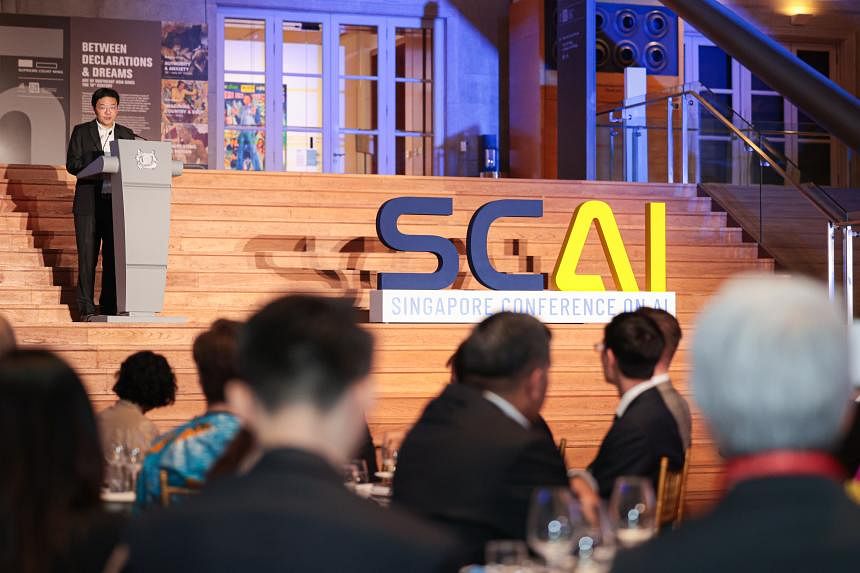SINGAPORE – The influx of artificial intelligence (AI) tools in healthcare, education, security and other sectors is “not by chance” but comes on the back of years of planning and investment, said Deputy Prime Minister Lawrence Wong on Dec 4.
Singapore has taken steps to master and make use of AI across many fields, but a new plan is needed to gear the nation to adopt AI while mitigating its risks, he said as he announced the revised National AI Strategy at a launch event held at the National Gallery.
The new plan signals a shift in gears, focusing on ways to prepare the economy to embrace and utilise AI, expanding on use cases within sectors such as healthcare and education listed in the inaugural report.
Launched in 2019, the first blueprint laid out five broad uses for AI up to 2030, including the prediction of chronic disease, organisation of freight and logistics, and improvements to border clearance operations.
That year, Singapore was among the first countries to introduce a national AI strategy, kick-starting AI projects in multiple fields. These included the use of AI in border clearance operations, for predicting chronic diseases, and for moving freight more efficiently. They continue to be incrementally rolled out under plans in the inaugural edition of the country’s AI strategy.
More than $500 million has been invested in research and development through national research programme AI Singapore since 2019.
AI could also be used for administration to help residents through an AI-powered chatbot, and to roll out pre-emptive estate maintenance.
Under the earlier plan, students receive a more personalised learning experience, while teachers enjoy the benefits of an automated marking system, allowing them to focus less on routine assessment tasks.
Singapore has made headway in many of the goals listed in the 2019 AI strategy report, said DPM Wong, adding: “It is not by chance that we can do these in Singapore today.”
Hospitals have ramped up their use of AI, which now helps medical professionals to screen for illnesses like heart disease, malaria and near-invisible cancerous growths with greater accuracy.
AI is also playing a growing role in the classroom. The AI-enabled Adaptive Learning System makes customised learning recommendations for each pupil based on how he or she responds to questions and activities.
The system was launched in June for mathematics in three topics covered at Primary 5.
At the borders, a next-generation gantry is in the works to allow travellers to clear immigration by simply walking through, instead of having to wait behind multiple barriers to scan their passports and biometrics.
Progress in AI has helped Singapore to carve itself a niche, achieving high rankings in global AI indices and laying the ground for more than 80 active AI research faculties, and 1,100 AI-related start-ups here, said the report.
In 2023, the nation rallied 50 tech firms and AI-builders, including the likes of Google and Microsoft, to form the AI Verify Foundation, which will set guidelines on how AI should be built to mitigate risks like biased databases and false information.
These issues have spilt into the mainstream due to the rapid development of generative AI, spearheaded by the public roll-out of ChatGPT and similar large language models that provide human-like AI assistance.
In the light of these advancements, Singapore’s strategy must expand for businesses and society to reap the rewards and mitigate AI’s threats, the report noted.
Leading AI experts from around the world are here for the three-day Singapore Conference on AI (SCAI), where they will discuss the most pressing issues that AI poses to the world. Their findings will be made public on Dec 6.
Opening the conference on Dec 4 at The Ritz-Carlton, Millenia Singapore, Communications and Information Minister Josephine Teo said: “Specifically, our goal in the next few days together is to identify the critical questions of AI that, if answered systematically, will enable AI to truly serve the global good. Asking the right questions gets us closer to the answers we need.”
She added: “SCAI is an experiment and we will be collectively learning along the way. But we know that we must try, because the age of AI is too important for us to sleepwalk into.”


